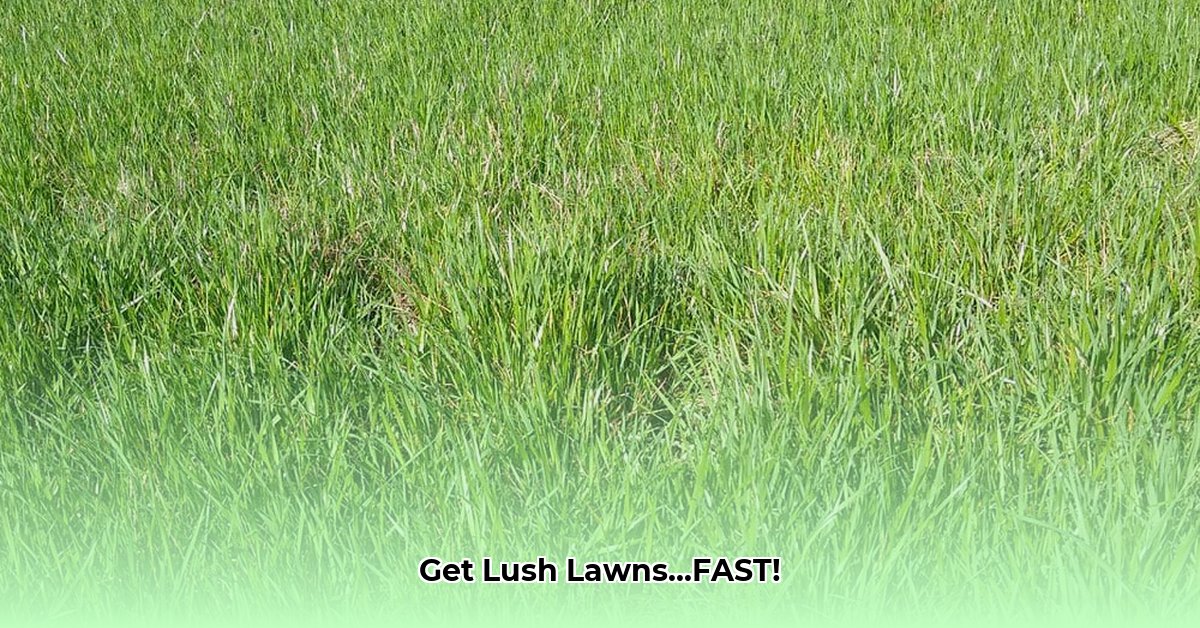
Ryegrass at Tractor Supply: Your Lush Lawn Awaits
Dreaming of a vibrant, green lawn? Ryegrass, readily available at Tractor Supply, offers a fast route to that lush look. However, before you make a purchase, let's explore what we know – and what we don't know – about this popular grass seed. Accessing comprehensive details directly from Tractor Supply's website proved challenging, leaving some key questions unanswered. This limits the scope of our review, but we can still equip you with essential information. For maintaining your lawn equipment, check out these helpful tips.
Perennial Ryegrass: The Quick and Green Solution
Perennial ryegrass is a popular choice due to its rapid germination and the deep green color it creates. It's also surprisingly durable, tolerating a moderate amount of foot traffic. This makes it suitable for families with active lifestyles. However, it's important to understand that "perennial" doesn't imply everlasting life. While it can persist for several years, it thrives best in cooler climates and may struggle in extremely hot summers. Is it the right choice for your climate and lifestyle?
Choosing Your Ryegrass at Tractor Supply: Navigating the Unknowns
Tractor Supply's ryegrass selection is generally readily available. However, crucial information is lacking, hindering informed decision-making. What specific types of ryegrass are offered? What are their origins? What sustainability practices are employed in their cultivation? These essential questions remain unanswered due to a lack of readily available information from Tractor Supply, making it difficult to select the best option for your lawn and the environment. This lack of transparency is a concern.
Planting Your Ryegrass: A Simple Step-by-Step Guide
Successful ryegrass establishment hinges on proper planting techniques. Here's a straightforward guide:
Site Preparation: Remove weeds and thatch (the layer of dead grass). If your soil is compacted, aerate it to improve drainage and root penetration. A soil test will identify nutrient deficiencies, enabling you to amend the soil before planting.
Seed Selection: Opt for high-quality seed appropriate for your local climate. While detailed variety information isn't readily available from Tractor Supply, your local garden center or agricultural extension office can offer valuable guidance.
Seed Spreading: Follow package instructions for the correct seeding rate. Gently rake the seeds into the soil to ensure good soil contact.
Watering: Water gently and consistently after planting until germination occurs. Maintain consistently moist but not soggy soil.
Ongoing Care: Regularly mow your lawn to encourage healthy growth and maintain appearance. Utilize a fertilizer formulated for your specific grass type, following label instructions and considering local climate conditions.
Weighing the Pros and Cons of Tractor Supply Ryegrass
While a complete assessment is hampered by data limitations, a balanced perspective is crucial.
| Pros | Cons |
|---|---|
| Readily available and convenient | Limited online product information (variety, origin, sustainability practices) |
| Fast germination and establishment | Uncertainty regarding seed quality and sourcing |
| Can create a durable, resilient lawn | May lack environmentally friendly options without detailed information from Tractor Supply |
| Potentially cost-effective | Potential for less robust varieties or lower sustainability compared to other options |
A Call for Greater Transparency
Consumers deserve clear, complete information. We urge Tractor Supply (and other retailers) to improve product transparency. Providing detailed information on seed origin, sustainability practices, and specific varieties sold benefits customers and protects the environment. Beautiful lawns shouldn't come at the expense of environmental health. Let's encourage greater industry transparency and informed consumer choices.
How to Assess the Sustainability of Perennial Ryegrass Seed from Tractor Supply
Choosing sustainable ryegrass impacts both your lawn's aesthetics and the environment. Let's explore how to assess the sustainability of your choices, even with limited information.
Understanding the Drought Challenge
Drought significantly impacts ryegrass yields and health. Research focuses on developing drought-resistant varieties by identifying genes that enhance water stress tolerance. While this research is promising, translating lab findings into commercially available seeds is a complex and time-consuming process.
What to Look For: Indicators of Sustainable Practices
Assessing sustainability is challenging due to limited transparency. However, several clues can guide your choices:
- Seed Source and Growing Practices: Inquire about the seed's origin and growing methods. While this information is not always readily available, it's worth asking Tractor Supply staff.
- Packaging: Recyclable or recycled packaging indicates a broader commitment to sustainability.
- Certifications: Organic certifications or other sustainability labels provide verification of responsible practices.
- Water Usage: Opting for drought-resistant varieties indirectly promotes water conservation.
Taking Action: A Multi-pronged Approach
Addressing sustainability requires a collaborative effort:
- Consumers: Demand transparency from retailers. Support companies prioritizing sustainability.
- Breeders/Researchers: Continue developing drought-resistant varieties.
- Tractor Supply: Improve transparency regarding ryegrass sourcing and growing practices.
- Policy Makers: Support research into sustainable farming practices.
Key Takeaways:
- Drought tolerance is crucial for sustainable ryegrass.
- Complete transparency in seed sourcing is lacking.
- Look for clues like packaging and certifications.
- All stakeholders have roles in promoting sustainability.